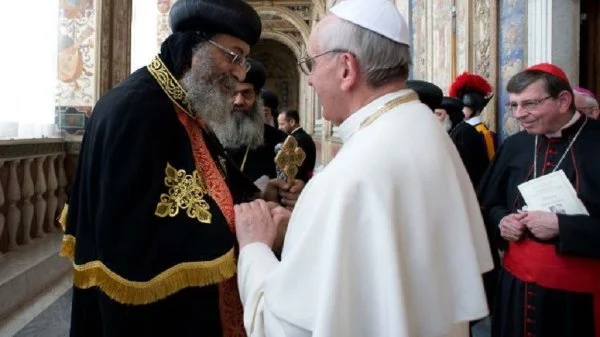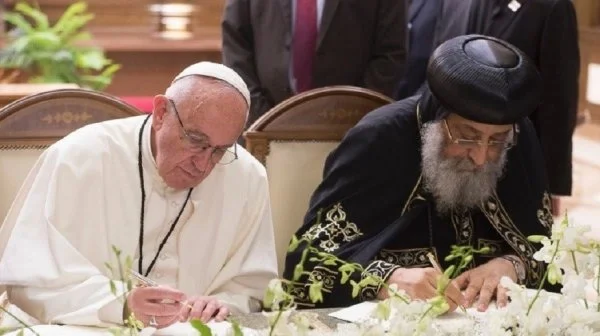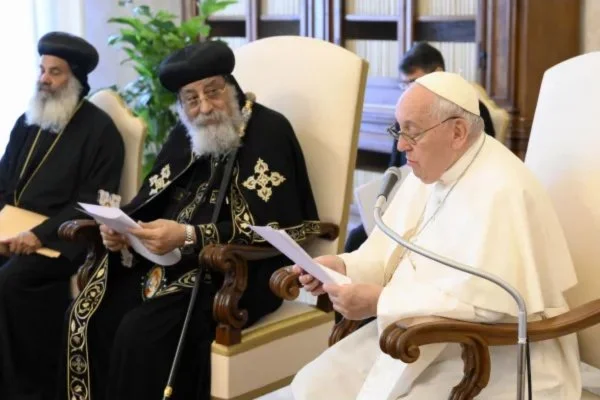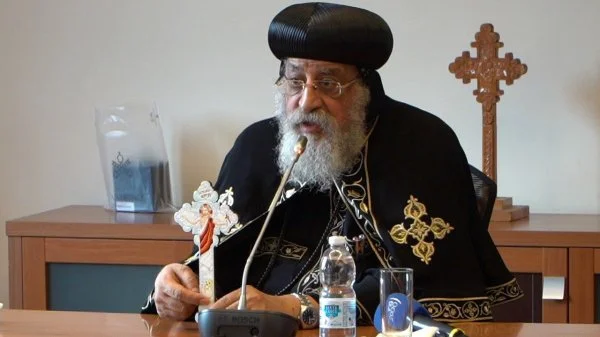- Français
- |
- Booklist
- |
- Week of Prayer
- |
- Links
- Areopagus - a forum for dialogue
- Academic journals
- Acronyms
- Bible tools
- Bibliographies
- Booksellers and publishers
- Churches
- Canadian church headquarters
- Directory of Saskatchewan churches
- Retreat centres
- Saskatchewan church and non-profit agencies
- Ecumenism.net Denominational links
- Anabaptist & Mennonite
- Anglican
- Baptist
- Evangelical
- Independent episcopal
- Lutheran
- Methodist, Wesleyan, and Holiness
- Miscellaneous
- Mormon
- Orthodox (Eastern & Oriental)
- Para-church ministries
- Pentecostal / charismatic
- Presbyterian & Reformed
- Quaker (Society of Friends)
- Roman & Eastern Catholic
- United and uniting
- Documents of Ecumenical Interest
- Ecumenical agencies
- Ecumenical Booklist
- Ecumenical Dialogues
- Glossary
- Human rights
- Inter-religious links
- Justice & peace
- Lectionaries
- Religious news services
- Resource pages
- Search Ecumenism.Net
- |
- Documents
- Ancient & Medieval texts
- Ecumenical Dialogues
- Interreligious
- Anabaptist & Mennonite
- Anglican
- Evangelical
- Lutheran
- Orthodox
- Reformed & Presbyterian
- Roman & Eastern Catholic
- United & Uniting
- Miscellaneous churches
- Canadian Council of Churches (CCC)
- Conference of European Churches (CEC)
- Interchurch Families International Network (IFIN)
- National Council of Churches in Australia (NCCA)
- Lausanne Committee for World Evangelism (LCWE)
- World Council of Churches (WCC)
- Other ecumenical documents
Church traditions
Documents from ecumenical agencies
- |
- Dialogues
- Adventist-Reformed
- African Instituted Churches-Reformed
- Anglican-Lutheran
- Anglican-Orthodox
- Anglican-Reformed
- Anglican-Roman Catholic
- Anglican-United/Uniting
- Baptist-Reformed
- Disciples of Christ-Reformed
- Disciples of Christ-Roman Catholic
- Evangelical-Roman Catholic
- Lutheran-Mennonite
- Lutheran-Mennonite-Roman Catholic
- Lutheran-Reformed
- Lutheran-Roman Catholic
- Mennonite-Reformed
- Mennonite-Roman Catholic
- Methodist-Reformed
- Methodist-Roman Catholic
- Oriental Orthodox-Reformed
- Orthodox-Reformed
- Orthodox-Roman Catholic
- Pentecostal-Reformed
- Prague Consultations
- REC-WARC Consultations
- Roman Catholic-Lutheran-Reformed
- Roman Catholic-Reformed
- Roman Catholic-United Church of Canada
- |
- Quick links
- Canadian Centre for Ecumenism
- Canadian Council of Churches
- Ecumenical Shared Ministries
- Ecumenism in Canada
- Interchurch Families International Network
- International Anglican-Roman Catholic Commission for Unity and Mission
- Kairos: Canadian Ecumenical Justice Initiatives
- North American Academy of Ecumenists
- Prairie Centre for Ecumenism
- Réseau œcuménique justice et paix
- Week of Prayer for Christian Unity
- Women's Interchurch Council of Canada
- World Council of Churches
- |
- Archives
- |
- About us
Copts suspend dialogue with Rome over same-sex blessings
— Mar. 12, 202412 mars 2024The Coptic Orthodox Church halts its theological dialogue with the Roman Catholic Church because of Vatican’s publication of “Fiducia supplicans“
The Coptic Orthodox Patriarchate of Alexandria has made the momentous decision to suspend its two-decades-long doctrinal dialogue with the Roman Catholic Church after the Vatican recently approved blessings for same-sex couples, something Coptic officials have called a “heresy.”
The Holy Synod of the ancient, Egypt-based Church announced on March 7 that it had decided “to suspend the theological dialogue with the Catholic Church, re-evaluate the results that the dialogue has achieved since its beginning twenty years ago, and establish new standards and mechanisms for the dialogue to proceed.” The catalyst for the decision, however, was the Dicastery for the Doctrine of the Faith’s publication last December of Fiducia supplicans, the document on blessings for couples “in irregular situations” — including those of the same sex.
The suspension of the theological dialogue is being seen as a severe setback in relations between Rome and Alexandria. It has come less than a year after Pope Tawadros II, the Coptic patriarch, joined Pope Francis for an unprecedented public audience in St. Peter’s Square.
Opposition to unity
“We cannot recognize that two people of the same sex form a couple,” an aide to Pope Tawadros told La Croix. “The text is unacceptable, as is the explanation later provided by the Vatican. Pope Francis wanted to please Europeans, but for us, it is a huge heresy,” the aide pointed out.
In its decree suspending the dialogue with Rome, the Holy Synod described homosexuality as a “sexual perversion” that is condemned in Sacred Scripture.
“The Bible in both Testaments condemns, warns against, and prohibits sexual practices between two people of the same sex,” asserted the Orthodox Coptic bishops.
But the Holy Synod’s statement has not meant the complete end to all ecumenical relations. Prayer initiatives for the Week of Prayer for Christian Unity – which will be held in Egypt from March 13- 22 in accordance with the Coptic liturgical calendar – remain in place. While only the theological dialogue is halted for now, the repercussions could be more significant in the future.
“Many in the Coptic hierarchy have systematically opposed unity with the Catholic Church in recent years,” noted Ashraf Alexandre Sadek, professor of Egyptology, Coptology and Biblical Archaeology at the University of Limoges (France). “With Fiducia supplicans, it’s as if Pope Francis has vindicated them. It has unearthed deeply buried conflicts,” he said.
An example of ecumenism
“Pope Tawadros II greatly appreciates Pope Francis,” said Rafic Greiche, a former spokesman for the Coptic Catholic Church in Egypt. “So far, he has managed to appease bishops opposed to any reconciliation with Catholics. It will now be much more difficult in the face of a Synod that will oppose any further progress,” the priest said.
Rome and Alexandria, however, had recently experienced great strides towards unity. This was significant progress for the Coptic Orthodox Church, a Church that traces its roots back to St. Mark in the early 1st century and counts some ten million members worldwide. It has been separated from Rome since the Council of Chalcedon in 451 A.D.
The two Churches held an ecumenical prayer service on February 15 in St. Peter’s Basilica to commemorate the 21 Coptic Orthodox martyrs of Libya. It was actually the first such celebration for the Catholic Church following Pope Francis’ decision last year to make in feast in Roman martyrology.
Regarding blessings for persons in same-sex relationships, Francis faces a discreet but real wave of protests from other non-Catholic Christian leaders, as well. This is a major change of tune compared to last year, when on September 30 many heads of Churches gathered in Rome for an ecumenical prayer vigil. These included Ecumenical Patriarch of Constantinople, Bartholomew I, the Archbishop of Canterbury, Dr. Justin Welby of Canterbury, and Syriac Orthodox Patriarch, Ignatius Aphrem II.
Cardinal Kurt Koch, prefect of the Dicastery for Promoting Christian Unity, told EWTN in January that he had received a “long letter from all the Oriental Orthodox Churches” regarding Fiducia supplicans. “They want explanations and clarifications on this document,” he said.
The issue was discussed a week later in Rome during the plenary meeting of the Joint International Commission for Theological Dialogue Between the Catholic Church and the Oriental Orthodox Churches, which is held between the Catholic Church and [7 Oriental] Orthodox Churches.
Several Vatican sources have told La Croix that the Dicastery for Promoting Christian Unity was never consulted on Fiducia supplicans, and that its officials only heard of the document on the day of its publication.
(Additional reporting by Loup Besmond de Senneville at the Vatican.)

 Permanent link: ecumenism.net/?p=14093
Permanent link: ecumenism.net/?p=14093
Categories: La Croix • In this article: Catholic, Coptic, dialogue, Fiducia Supplicans, Oriental Orthodox, same-sex blessing, Tawadros II

 Lien permanente : ecumenism.net/?p=14093
Lien permanente : ecumenism.net/?p=14093
Catégorie : La Croix • Dans cet article : Catholic, Coptic, dialogue, Fiducia Supplicans, Oriental Orthodox, same-sex blessing, Tawadros II








